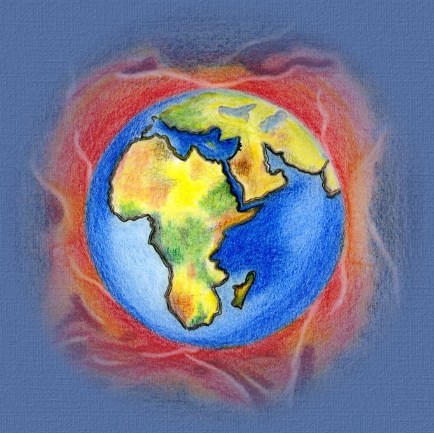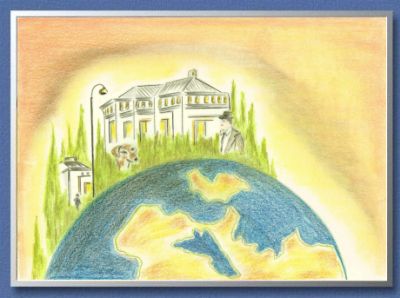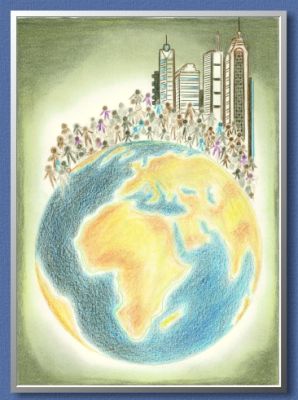Tales from the Northern Forests
Earth Day
(22nd April)
In the late 1960's a new revolutionary theory regarding planet Earth was developed by dr. James Lovelock. He proposed the theory, shortly after his work with NASA on methods of detecting life on Mars and named it after the Greek Earth Goddess Gaia. The basis of the Gaia theory is that planet Earth is a single living, self-regulating organism. It asserts that both the organic and inorganic components of planet Earth have evolved together as a single living entity that automatically adjusts to changes in order to maintain suitable conditions for life (rather as a warm-blooded animal regulates its body temperature).
The Gaia theory suggests that life on Earth will continue, no matter what humans do to it. The problem may be that the forms of life that survive may not include humans.i
An Ode To Mother Earth
Who gives me her stone to build my house from?
Who gives me her wood to build my fire from?
Who gives me her water to drink from?
Who gives me her fruit to eat from?
Is that not you
my dear mother Earth?
But, my dear mother Earth,
for what it's worth
I love you too!
Mother Earth also features in Book of Tales' calendar under
Summertime >>
While some information that seems to support the above theory but from a completely different source is safely hidden away in Book of Tales' Secret Files under
Planet Earth >>
Food for Thought
Too much of a good thing ...
Using a small scale, local farming to feed a world
of nine billion people
would consume every hectare
of the earth's surface.
Is this maybe an indication that there are simply
to many of us?
- Pollock, Steve, Eyewitness Science, Ecology, London, 1996, ISBN 0 7513 1041 7.
© Brigitte Franssen 2006
WonderfulWorld.mp3



